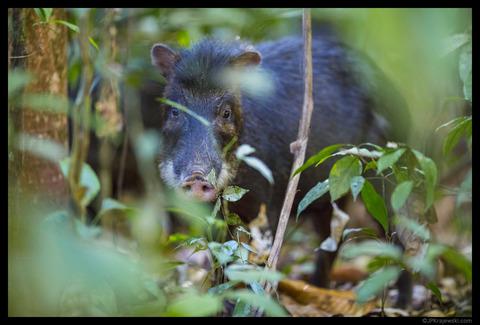当前位置:
X-MOL 学术
›
Funct. Ecol.
›
论文详情
Our official English website, www.x-mol.net, welcomes your
feedback! (Note: you will need to create a separate account there.)
Frugivory underpins the nitrogen cycle
Functional Ecology ( IF 4.6 ) Pub Date : 2020-11-23 , DOI: 10.1111/1365-2435.13707 Nacho Villar 1, 2 , Claudia Paz 1 , Valesca Zipparro 1 , Sergio Nazareth 1 , Leticia Bulascoschi 1 , Elisabeth S. Bakker 2 , Mauro Galetti 1, 3
中文翻译:

节食是氮循环的基础
更新日期:2020-11-23
Functional Ecology ( IF 4.6 ) Pub Date : 2020-11-23 , DOI: 10.1111/1365-2435.13707 Nacho Villar 1, 2 , Claudia Paz 1 , Valesca Zipparro 1 , Sergio Nazareth 1 , Leticia Bulascoschi 1 , Elisabeth S. Bakker 2 , Mauro Galetti 1, 3
Affiliation

|
- Tropical rainforests are populated by large frugivores that feed upon fruit‐producing woody species, yet their role in regulating the cycle of globally important biogeochemical elements such as nitrogen is still unknown. This is particularly relevant because tropical forests play a prominent role in the nitrogen cycle and are becoming rapidly defaunated. Furthermore, frugivory is not considered in current plant‐large herbivore‐nutrient cycling frameworks exclusively focused on grazers and browsers.
- Here we used a long‐term replicated paired control‐exclusion experiment in the Atlantic Forest of Brazil, where peccaries and tapirs are the largest native frugivores, to examine the impact of large ground‐dwelling frugivores on modulating soil nitrogen cycling, considering their effects across a gradient of abundance of a hyper‐dominant palm.
- We found that both large frugivores and dominant palms play a substantial role in modulating ammonium availability and nitrification rates. Large frugivores increased ammonium by 95%, which also increased additively with palm abundance. Nitrification rates increased with palm abundance in the presence of large frugivores, but not on exclosure plots. Large frugivores also stimulated the regulation of the functions of soil‐nitrifying microorganisms, and modulated the landscape‐scale variance in nitrogen availability. Such joint effects of large frugivores and palms are consistent with the notion of ‘fruiting lawns’.
- Our study indicates that frugivory plays a pivotal role in zoogeochemistry in tropical forests by regulating and structuring the nitrogen cycle, urging to accommodate frugivory in plant‐large herbivore‐nutrient cycling frameworks. It also indicates that defaunation, deforestation and illegal palm and timber harvesting seriously affect nitrogen cycling in tropical forests, that play a prominent role in the global cycle of this nutrient.
中文翻译:

节食是氮循环的基础
- 热带雨林以大型节食动物为食,这些节食动物以产果的木本植物为食,但它们在调节全球重要的生物地球化学元素(如氮)循环中的作用仍未知。这特别相关,因为热带森林在氮循环中起着重要作用,并且正在迅速消失。此外,在目前仅专注于放牧者和浏览器的植物大草食动物养分循环框架中,没有考虑到食肉。
- 在这里,我们使用了巴西大西洋森林中的野猪和are为最大原生果蝇的长期重复配对对照排除实验,研究了大型地栖果蝇对调节土壤氮循环的影响,并考虑了它们对土壤氮循环的影响。超级掌心丰度的梯度。
- 我们发现,大型节食动物和优势棕榈都在调节铵的利用率和硝化率方面发挥着重要作用。大型节食动物将铵含量提高了95%,并且随着棕榈丰度的增加而增加。在有大型节食动物的情况下,硝化率随棕榈丰度的增加而增加,但在裸露地块上却没有。大型节食动物还刺激了硝化土壤微生物功能的调节,并调节了氮素利用的景观尺度差异。大型节食动物和棕榈树的这种共同作用与“结果性草坪”的概念一致。
- 我们的研究表明,节食作用通过调节和构建氮循环,在热带森林的动物地球化学中起着关键作用,并呼吁将节食作用纳入植物-大型草食动物-营养物循环框架中。这也表明,毁林,滥砍滥伐以及非法采伐棕榈和木材会严重影响热带森林中的氮循环,在氮素的全球循环中发挥着重要作用。











































 京公网安备 11010802027423号
京公网安备 11010802027423号